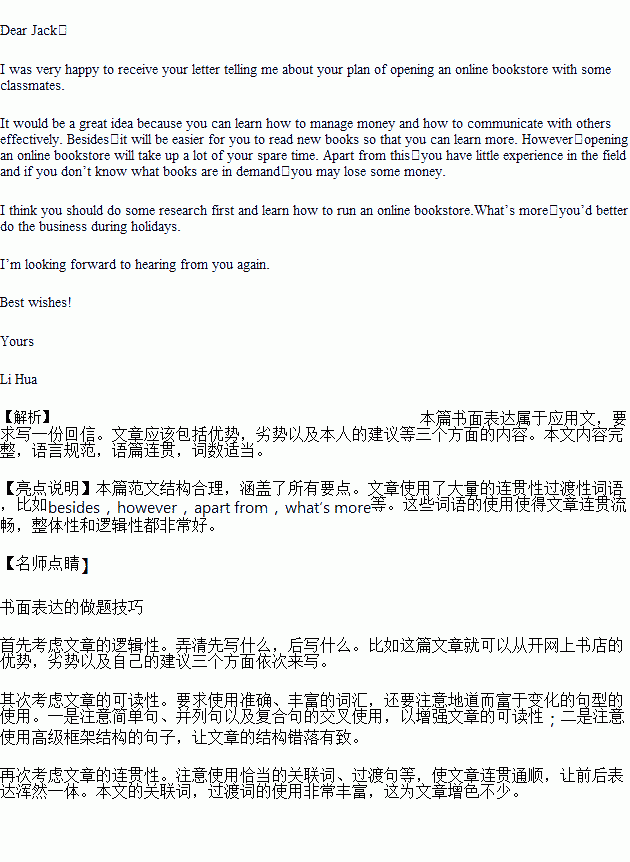ĚâÄżÄÚČÝ
ĽŮÉčÄăĘÇŔŁ¬ÄăµÄ±ĘÓŃJackŔ´ĐŸćËßÄăËűĎëşÍĽ¸¸öͬѧżŞŇ»ĽŇÍřÉĎĘéµęŁ¬ĎëŐ÷ÇóÄăµÄŇâĽűˇŁÇë¸ůľÝŇÔĎÂŇŞµă¸řJackĐ´Ň»·â»ŘĐšŁ
1Ł®şĂ´¦ŁşżÉŇÔѧ»áŔí˛ĆĽ°ÓëČËąµÍ¨Ł¬×ÔĽşż´Ęé¸ü·˝±ăµČŁ»
2Ł®ÁÓĘĆŁşŐĽÓñȽ϶ŕµÄʱĽäŁ¬ľŃ鲻×㣬ĘĐłˇ°ŃÎŐ˛»şĂµČŁ»
3Ł®Ěáłö˝¨Ň顣
עŇ⣺1.´ĘĘý120×óÓŇŁ»
2Ł®żÉĘʵ±ÔöĽÓϸ˝ÚŁ¬ŇÔĘąĐĐÎÄÁ¬ąáŁ»
3Ł®żŞÍ·ÓďÓë˝áβŇŃÎŞÄăĐ´şĂŁ¬˛»ĽĆČë×Ü´ĘĘýˇŁ
Dear JackŁ¬
I was very happy to receive your letter telling me about your plan of opening an online bookstore with some classmates.
____________________________________________________________________________________________
____________________________________________________________________________________________
____________________________________________________________________________________________
____________________________________________________________________________________________
____________________________________________________________________________________________
____________________________________________________________________________________________
____________________________________________________________________________________________
Best wishes!
Yours,
Li Hua
 ÔĶÁżěłµĎµÁĐ´đ°¸
ÔĶÁżěłµĎµÁĐ´đ°¸
